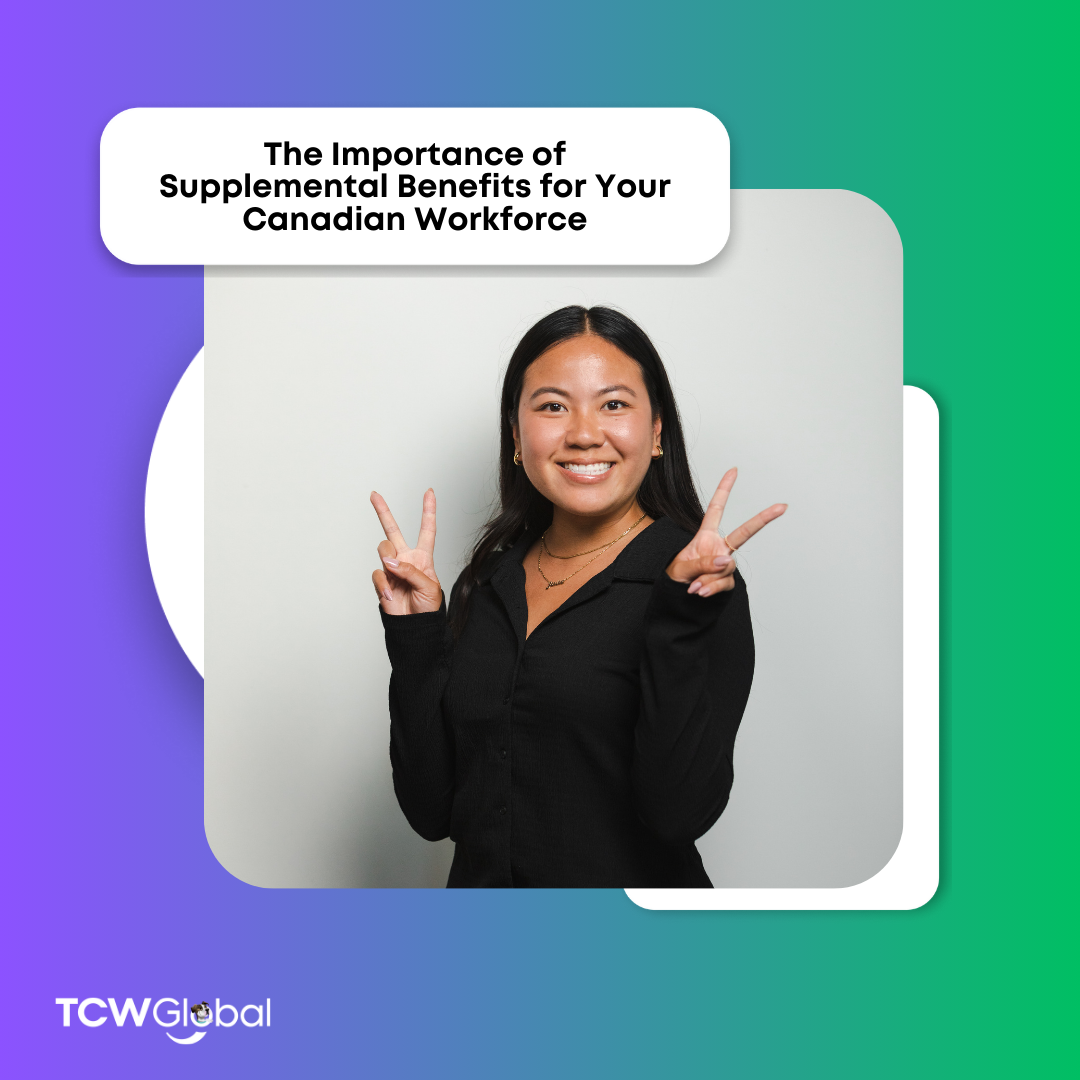The Importance of Supplemental Benefits for Your Canadian Workforce: A Guide for U.S. Based Companies
October 6, 2024

You may have heard about our northern neighbor’s universal healthcare system, or Medicare, which covers basic medical needs to all of Canada’s citizens and permanent residents. There is also limited eligibility for temporary residents and protected persons depending on the circumstances and province. With universal healthcare on the table, it is not a requirement to offer your Canadian workforce health insurance. However, it’s important to understand what is covered by Medicare, and where the gaps are so that you can make an informed decision when determining if you will offer supplemental health benefits to your workers located in Canada.
There are 13 provincial and territorial health care insurance plans, which cover “medically necessary services” provided by hospitals, physicians and dentists (if the service must be performed in a hospital). Each territory and province are responsible for defining medically necessary services. So, why should you consider including supplementary health benefits in your worker’s offers? Let’s take a look at a few key points below.
#1 Supplemental Health Benefits Help Address the Gaps in Public Healthcare Coverage
Coverage for prescription medications, routine dental check-ups, cleanings and major dental procedures, eye exams, glasses and contact lenses, chiropractic care, physiotherapy, counseling, and psychotherapy are all services that are not included in Canada’s public healthcare system. These services can be a significant financial burden, and to help with the out-of-pocket costs, about 70% of Canadians are enrolled in some form of supplemental benefit plan. Some Canadians without employer-sponsored plans purchase private health insurance, and there is additional government assistance for specific groups, such as seniors, low-income individuals and children. However, the majority of plans are provided by employers, and about 60%-65% of working Canadians receive supplemental health benefits through their employers. Because of this, many workers expect supplemental health insurance to be a part of their employment offer.
#2 Promoting Your Workers' Well-Being Helps Attract and Keep a Healthy and Diverse Workforce
Offering supplemental health benefits enhances the compensation packages, giving companies a competitive edge when attracting a skilled and diverse workforce. Ranging from young to old, family coverage or single coverage, workers are able to tailor their health coverage to their specific needs. This promotes a better work-life balance and a sense of security. When your workforce feels valued and supported, both personally and professionally, it shows the company cares about their worker’s well-being, creating a positive work environment, enhancing engagement, motivation, and commitment.
When workers have access to dental, vision, mental health, and prescription drug coverage, they can proactively manage their health. This can boost productivity and lead to fewer sick days.
This, in turn, can lead to lower turnover rates, building a stable workforce.
#3 There are More Than just Health Benefits to Up Your Game in the Canadian Market
In addition to health benefits, The Canada Pension Plan (CPP) is a government-run pension plan that provides retirement, disability and survivor benefits to eligible Canadians. The CPP is a key part of Canada’s public retirement income system. Contributions are mandatory for both the worker and company through payroll deductions. As of 2024 the average monthly CPP retirement payment for new beneficiaries is about CAD $760.00, and the maximum monthly amount for someone retiring at age 65 is CAD $1,508.00.
To encourage financial well-being and provide a more secure retirement income, it’s also common for companies to offer supplementary pension benefits through group Registered Retirement Savings Plans (RRSP), which is like the American 401(k). Contributions made to an RRSP are tax-deductible, and Canadians can contribute up to 18% of their earned income from the previous year, up to a maximum limit set annually by the Canadian government. Just like the 401(k), companies match a percentage of the worker's contributions, which is typically 3%.
In Conclusion
When companies invest in their workforce it is a win-win for the overall long-term company success. Taking care of your workers shows them they are valued. It can create a sense of security, attracting and retaining top talent and improving overall job satisfaction. If you would like to know more about the Canada group benefit plans we have available, please reach out to your TCWGlobal support team or hello@tcwglobal.com so we may assist you with achieving your goals of having a happier, healthier Canadian workforce!
